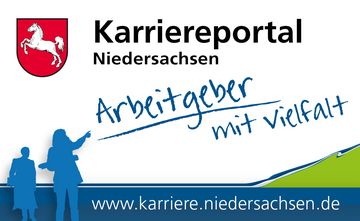Stellenangebote
Stellenangebote
Die Universität Oldenburg engagiert sich für Gleichstellung, Diversität, Inklusion und die Vereinbarkeit von Familie und Beruf. Sie ist Unterzeichnerin der Charta der Vielfalt und seit 2004 als familiengerechte Hochschule zertifiziert. Wir begrüßen Bewerbungen von Menschen aller Nationalitäten, ethnischer und sozialer Herkünfte, Religionen, geschlechtlicher Identitäten, sexueller Orientierungen und Altersstufen.
 Stellenausschreibung / Job advertisement
Stellenausschreibung / Job advertisement
The University of Oldenburg, the School IV of Humanities and Social Sciences, the Institute of History, Dep. of Early Modern History, is seeking to fill a position from 1 February 2025 as a
Research Assistant (m/f/d)
(pay grade 13 TV-L)
for 50% of the regular weekly working hours (currently 19.90 hours/week) available from 1 February 2025 for a fixed term of three years (with option to extend).
The possibility to write a PhD thesis is given.
The Department of Early Modern History at the University of Oldenburg is internationally and transdisciplinarily positioned through the acquisition of several research projects with a global historical focus and offers a correspondingly diverse and interesting research environment in exchange with other scholars as well as opportunities for connection to third-party funded projects.
Tasks:
- Research on German and European / non-European history of the early modern period as well as writing a PhD in this field
- Teaching in the field of German and European / non-European history of the early modern period. The teaching load is currently 2 LVS per semester.
- Collaboration in the organisational activities of the Department of Early Modern History
Recruitment requirements:
- Completed academic university degree (Master's) in history, ideally early modern history
- Language and foreign language skills in German and English and at least one other modern foreign language
- Familiarity with cultural studies approaches
- Communication skills and ability to work in a team
- High degree of initiative
- Computer skills and familiarity with common computer applications
Desirable:
- Experience abroad and/or international research network
- Palaeographical knowledge of the 17th and 18th centuries
- Knowledge of early modern global history
- Experience with and interest in collaborating with other researchers
- Experience in research-orientated teaching
What we offer:
- Qualification opportunities that support your own research activities and qualification work in an academic and skills-oriented manner, as well as enabling a broad range of professional connections in non-university areas
- integration into a young and dynamic university with the opportunity to participate in numerous interdisciplinary and transdisciplinary research activities
- opportunities to connect with a large team of researchers in the field of early modern history
The University of Oldenburg is dedicated to increase the percentage of female employees in the field of science. Therefore, female candidates are strongly encouraged to apply. In accordance to § 21 Section 3 NHG, female candidates with equal qualifications will be preferentially considered. Applicants with disabilities will be given preference in case of equal qualification.
Please send a letter of application together with all supporting documents (CV, copies of relevant qualifications related to the above-mentioned tasks and recruitment requirements, your PhD proposal, if applicable, a list of publications/academic achievements and two independent references, by 15 October 2024 under the keyword: „FwN Frühe Neuzeit“ by email (please send a single PDF file) Carl von Ossietzky University Oldenburg, Institute of History, Prof. Dr. Dagmar Freist, 26111 Oldenburg.
Unfortunately, travelling expenses incurred during the interviews cannot be reimbursed.
If you have any questions about the position, please contact: Prof Dr Dagmar Freist (



